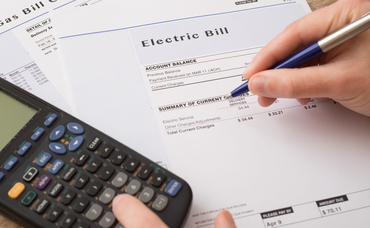Are home renovations in your future? Whether you’ve just bought a house or are considering putting yours on the market, chances are you’ll need to make some repairs or updates soon. Without proper planning, your project could quickly derail and become much more expensive and time-consuming than you bargained for. Here’s what you need to know to avoid a renovation nightmare.
Know what you want
First of all, you need to be crystal clear about what you want to achieve with your home renovation. Get specific. For example, let’s say you want to renovate your bathroom. When planning that bathroom remodel, you need to be much more specific than that. Do you want to overhaul the whole room and replace the tub, shower, toilet and vanity? Or will you be satisfied with a new coat of paint and some new decorations? Knowing what you want to accomplish will help you create a plan for the project.
Set a budget
Once you’ve created a plan, you need to determine your budget. Home renovations can easily become a nightmare when you sink much more money into the project than you intended. Write down everything you’d like to do, and research how much each of those things will cost. If your costs are getting too high, find ways to economize. This could include using less expensive materials or eliminating certain aspects of the project entirely.
Understand building codes
When completing any home improvement project, you need to be aware of your local building codes. Some projects will require a permit. It’s important to secure the proper permit before completing a job. If you don’t, then you could have problems down the line when you’re selling your home. While you may think that getting the proper permits is a hassle, it is one responsibility that you should not ignore.
Know when to call a professional
Many homeowners take the DIY approach when it comes to home renovations. Although this can certainly save you money, there are some projects that should be left to the pros. These include replacing kitchen cabinets, knocking down walls, or updating electrical systems. If the potential for risk is high, then call in a professional.
Hire the right professional
Just because someone calls themselves a professional doesn’t always mean that they actually are. When hiring a contractor, you need to make sure that they are licensed and insured. Check online reviews and contact previous clients to find out how happy others were with their work. See if any complaints have been filed with a local licensing board or the Better Business Bureau. Though it may be tempting to hire the person with the lowest bid, it isn’t worth it if it will cause you headaches down the line.
Get everything in writing
When getting a price quote from a contractor, it should state everything that is included. If not, you may find that all those little “extras” begin to add up. You should receive a “scope of work” or similar document with specific details about what work will be completed and all the materials that will be included. Your contract should also include a payment schedule and a refund agreement.
Compliments of Virtual Results





 Welcome! By submitting information, I am providing my express written consent to be contacted by representatives of this website through a live agent, artificial or prerecorded voice, and automated SMS text at my residential or cellular number, dialed manually or by autodialer, by email, and mail.
Welcome! By submitting information, I am providing my express written consent to be contacted by representatives of this website through a live agent, artificial or prerecorded voice, and automated SMS text at my residential or cellular number, dialed manually or by autodialer, by email, and mail.


